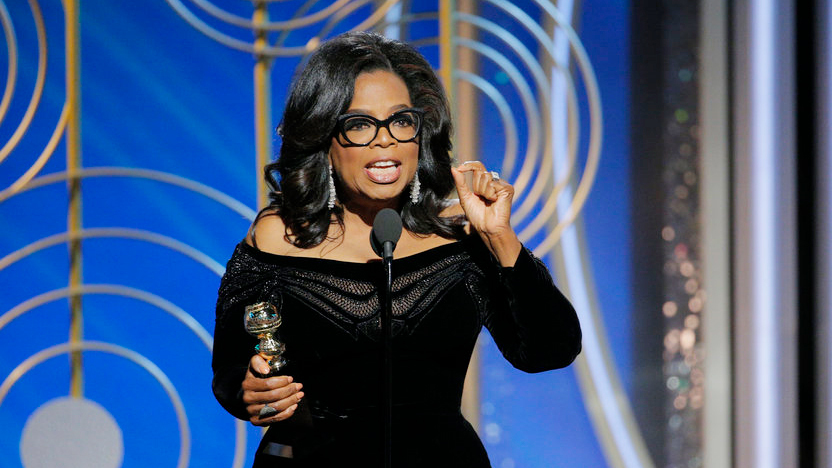Oprah Winfrey’s speech at the Golden Globes this Sunday sparked speculation over whether the billionaire celebrity might run for president in 2020. Some are intrigued by the possibility of a candidate who could stand on equal footing with President Donald Trump in terms of fame and TV-readiness, while others were dismayed over the prospect of a celebrity-vs-celebrity battle for the White House. What few seem to recognize is how our campaign finance laws make these match-ups more likely. That’s because existing regulations do little to curb the advantages of wealth, and do nothing to curb the advantages of fame.
Imagine a new candidate just starting her campaign for federal office. She needs money to pay for staff, transportation, lodging, and promotional materials, such as yard signs and bumper stickers. If she’s like most people, she’ll have to raise that money from willing contributors, and each donor can give her campaign no more than $2,700 per election. While she’s working hard to raise the money, her wealthy opponent can simply cover the costs of his campaign out of pocket.
All things considered, however, a celebrity’s wealth is the lesser half of the equation. Candidates who miss out on the ancillary benefits of fundraising often suffer for it on Election Day, but celebrities not only have an easier time paying for things – they have an easier time getting things that can’t be bought. Chief among them is media coverage.
Let’s go back to our new candidate for a second. One of her biggest tasks before Election Day will be to increase her name recognition with voters. That includes knocking on doors and making campaign ads, sure, but it also includes getting in the news. The value of “free” media coverage can be enormous, totaling billions of dollars in a presidential election. Candidates know this and develop strategies to attract positive coverage in response.
For people like our hypothetical candidate, that means spending precious time, money, and dignity trying to get the media to take notice of their campaign. Celebrities, on the other hand, just have to exist. Media outlets flock to celebrities like moths to a flame, covering their every utterance as if it’s the most important thing on Earth. Especially in a crowded primary field, fame is a fast-track to disproportionate media coverage, and that coverage matters – likely much more than campaign ads do.
What we’re left with after over forty years of trying to “get money out of politics” while preserving press freedom is an upsetting dichotomy: the Mr. Smiths trying to Go To Washington are met with daunting, voluminous regulations, while the celebrity plutocrats are treated to friendly chats on Morning Joe.
The fact that so many feel it would take a candidate like Oprah to defeat a candidate like Donald Trump is an admission that the standard “reform” model for campaigns – small donations, invasive disclosure, taxpayer-funded campaigns – does not account for the unique advantages of wealthy celebrity candidates. A more realistic approach would be to unchain candidates by removing contribution limits and simplifying complex regulations. The celebrities would still have their advantages, but at least their opponents could fight back without the government getting in the way.













